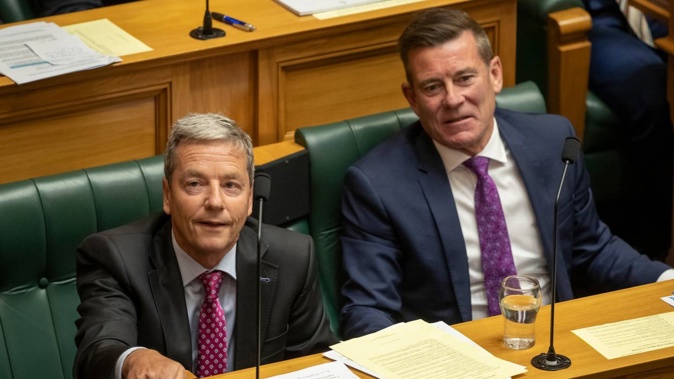
National and Act accidentally forgot to vote against a Labour party tax bill, once described by National’s Andrew Bayly as David Parker’s “pet envy project”, and the precursor to Capital Gains Tax.
Former Revenue Minister David Parker proposed a Tax Principles Reporting Bill, which will require regular reporting of how New Zealand’s tax legislation stacks up against tax “principles”.
National and Act both disagree with it. Bayly has said National will repeal it if passed, saying the bill was really about Parker “pursuing his long-held dream of being able to tax people even more”.
However, instead of having their votes recorded against the bill - when it came up for second reading in Parliament on Thursday - both parties supported, by failing to have their votes recorded against it.
The mistake happened because when it came to voting on the bill’s second reading, no party vote was called for. Usually, the first vote on a bill is a voice vote, with MPs saying “aye” and “no” to indicate their positions.
The Speaker decides the winner of that vote based on what they hear. Usually, the losing side will then call for a party vote. This means that a member of each party will read out the number of votes that party casts for or against a bill.
Those votes are then recorded in the Parliament record, Hansard, indicating who voted for what. An ordinary voice vote just declares if the motion is agreed to or not. In this instance no one from National or Act could be heard even recording a voice vote against the bill.
Shadow Leader of the House Michael Woodhouse later sought leave to amend the record, and record 30 votes opposed from National.
Woodhouse later sought leave for a party vote on the bill after the vote had been declared.
National’s Nicole McKee followed Woodhouse to amend Act’s vote too.
Labour’s Whip Shannan Halbert objected to leave from both, meaning the bill will passed its second reading without National and Act’s opposition recorded.
The slip-up came after National and Act managed to cast party votes for amendments of the bill.
Once passed, the bill will require IRD to compile annual reports on the fairness of the tax system.
The law will also require another report to be published every three years, beginning in 2025, which analyses the previous three years.
A Regulatory Impact Assessment for the bill say the reports will allow IRD to use powers to collect and commission new data on the way the tax system is working, in a way similar to the recently published report into the amount of tax paid by wealthy New Zealanders.
Officials, writing in the Regulatory Impact Statement, said the reports could throw up interesting and useful data of the kind New Zealanders only get to see when a government commissions a rare tax working group as in 2019, or before that in 2010.
But they also warned that some of the language in the bill could be contentious and open to debate, which would undermine Revenue Minister David Parker’s hopes for the legislation, that it acts as a non-partisan reporting mechanism that stands the test of time.
Both parties voted against the bill at first reading and will probably vote against it at third reading - if they remember.
Take your Radio, Podcasts and Music with you









